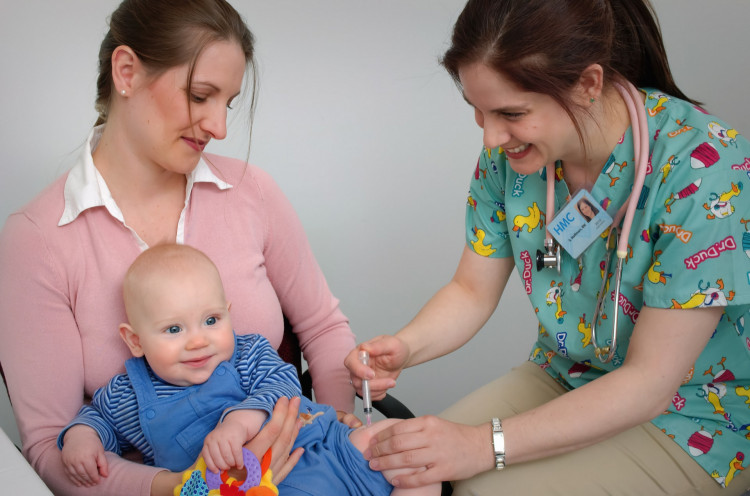According to White House COVID-19 response coordinator Dr. Ashish Jha, the U.S. has begun handing COVID-19 vaccines to children as young as six months across the country, and availability of the shots will improve in the coming days.
Late last week, U.S. regulators approved Moderna's two-dose vaccine for children aged six months to five years, as well as the Pfizer-BioNTech three-shot regimen for children aged six months to four years.
President Biden marked the unofficial start of the U.S.' vaccination campaign for children under the age of five on Tuesday, visiting a site in Washington, D.C., to meet with families and children while some shots were administered.
Federal health officials, eager to demonstrate the country's progress in combating deadly coronavirus cases, have been working for weeks to prepare parents and doctors for immunizing the youngest children, a population of around 20 million who have waited 18 months after adults first became eligible for the shots.
A Kaiser Family Foundation survey published in May, says only one-in-five parents with children under the age of five planned to vaccinate them "right away" after they became eligible. According to U.S. data, only about 29% of children aged five to 11 have been fully vaccinated with the Pfizer-BioNTech vaccine since its approval in October.
Chinmay Hegde, the father of a 14-month-old daughter, told Reuters outside Washington's Children's National Hospital that the U.S. approval was a huge relief. On Tuesday, his daughter was the first to be immunized at the hospital.
Children who start their vaccinations with the Pfizer shot this week may not receive their third dose until the week of Sept. 12 or later. Those who receive their first Moderna shot this week may be able to complete their immunization as soon as July 19.
According to Dr. Celine Gounder, an infectious disease specialist and editor-at-large for Public Health at Kaiser Health News, parents will need to weigh the number of shots versus the risk of side effects.
Moderna's vaccine contains a higher dose and is more likely to cause fever than Pfizer's.
However, some parents may believe that "even if it's a three-dose vaccine, it will reduce the risk of fever," she said.
Jha stated on Twitter on Monday that the rollout for younger children differed from that for other age groups in that there would be no mass vaccination sites, but that more inoculations would be performed in doctors' offices.
Vaccines began shipping on Friday and Saturday, and more doctors' offices and hospitals would begin accepting them on Tuesday and Wednesday of this week, according to Jha.






